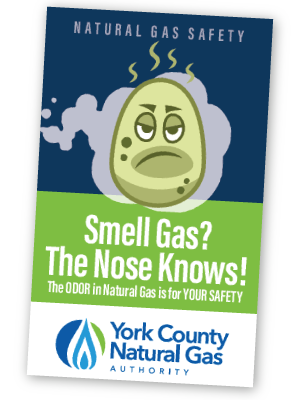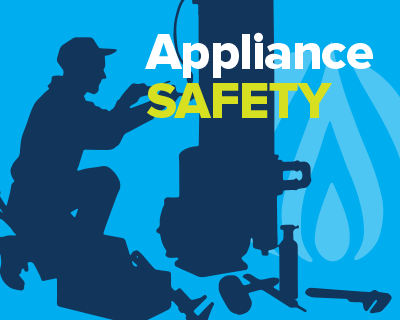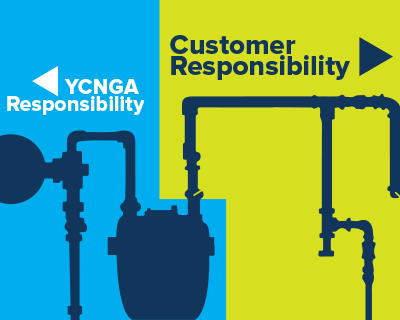What’s that smell?
How to Detect a Natural Gas Leak
Properties of Natural Gas
Composed primarily of methane gas, natural gas is lighter than air, burns cleanly and if released, rises and dissipates safely into the atmosphere. If natural gas collects in a confined space, it can displace oxygen or accidentally ignite.
Because natural gas, in its natural state is odorless, an odorant called Mercaptan is added to aide in leak detection. The great advantage of using Mercaptan as an additive is that it can be detected by most people in extremely small quantities, less that one part per million. Mercaptan contains sulfur and many people describe the odor as similar to rotten eggs or a burnt match.

Olfactory fatigue or a diminished sense of smell, in addition to other physical conditions including the common cold may lessen your ability to smell the odorant in natural gas.
Natural gas pipelines are buried underground not only for your safety but also to protect the pipes from weather and other outdoor elements. Although pipeline leaks are rare, understanding the warning signs can keep you and your family safe.
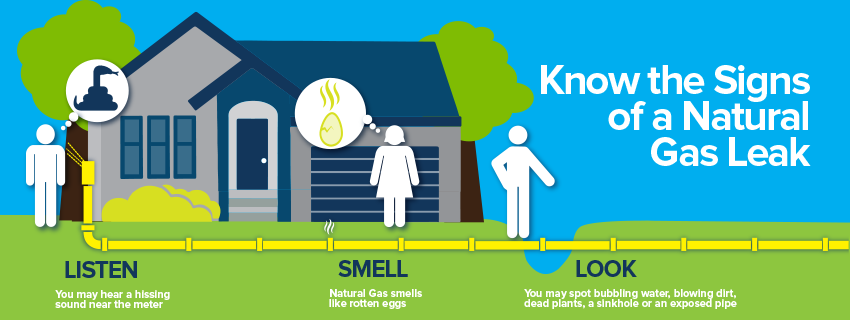
HOW TO DETECT A LEAK
INDOORS
Rotten Egg-Like Smell
Natural gas can be described as having a sulfur-like smell, similar to a rotten egg.
Hissing or Blowing Sound
You may hear a hissing or blowing sound near a natural gas appliance.
OUTDOORS
Dead or Discolored Vegetation
Nature can cause vegetation to change colors and flowers to wilt, but these changes could also indicate a natural gas leak. The gas blocks the flowers natural source of oxygen, and many fruits and vegetables change color when they come in contact with dangerous gases. If dead or discolored vegetation is surrounded by green and healthy vegetation that could be a warning sign that a gas leak is present.
Blowing Dirt
Spiraling or swirling dirt when little or no wind is present can be warning sign of a gas leak.
Bubbles In Standing Water
Bubbles in standing water can be an indication that a natural gas pipeline has broken.
What to do if you suspect a gas leak
If you smell a strong rotten egg odor inside your home, leave immediately. Do not flip switches, or make a call from inside your home. Avoid any activity that would create a spark. When you have walked a safe distance away from your home, call 9-1-1 and us at 866-201-1001. Keep others away from your property until the suspected leak has been inspected and secured.

Safety Inspections
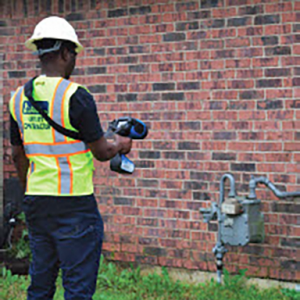
We take safety seriously
Our pipelines are monitored 24-hours a day, 365-days a year. In addition, we conduct thousands of safety inspections each year including aerial and ground patrols, internal pipeline inspections, corrosion controls and leak surveys. You may see our employees conducting surveys and safety inspections in your neighborhood, and even in your yard. See more…
Your Nose Knows!
We have gas odor scratch-n-sniff cards available to the public. Feel free to request a card in person at the customer service drive-thru or receive one via mail by filling out the form below.
